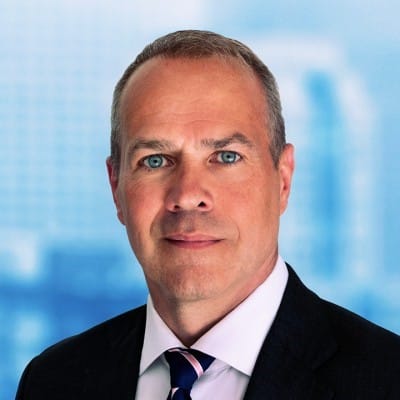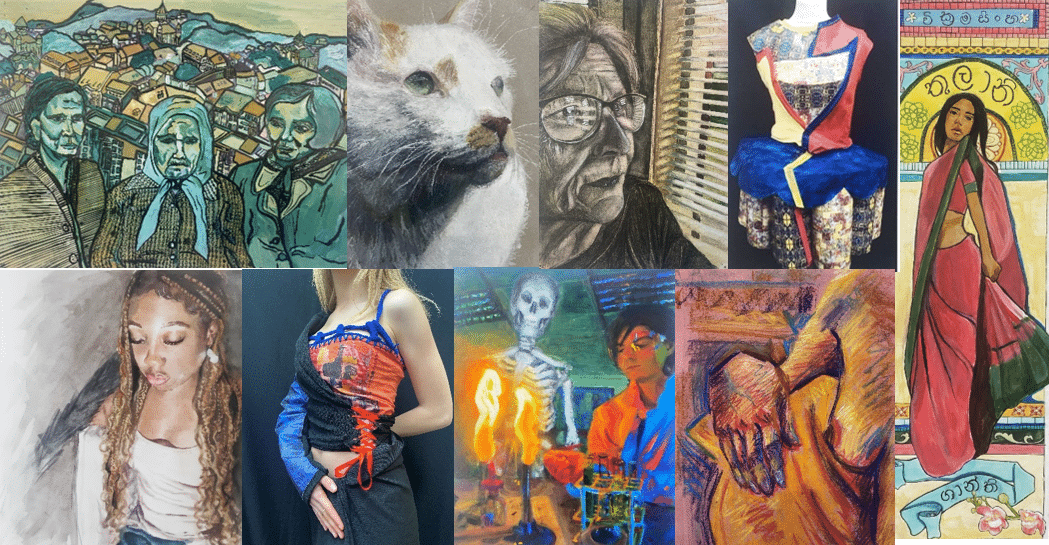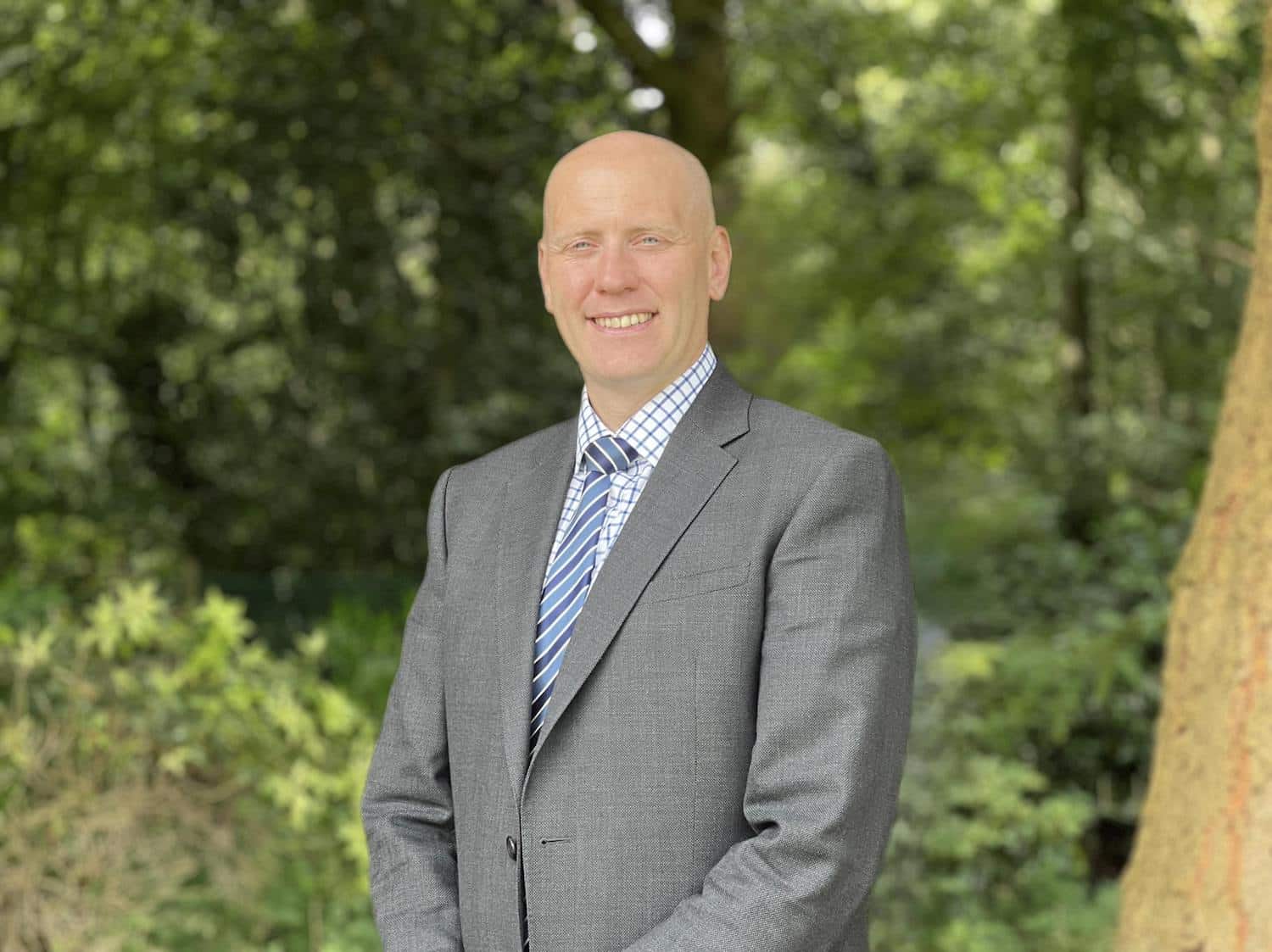Can you tell us about your time at Daniel Stewart’s College? Were there any particular teachers or experiences that stood out?
I started at Daniel Stewart’s College when I was just four years old and stayed until I was 17, from around 1952 to 1966. I had a wonderful teacher in my first three years, Miss Wilson – she was brilliant. She still remembered all of us years later, even at the final ceremony at the Usher Hall. Another standout was Maggie Robertson, who was much tougher but a very good teacher.
The school had some excellent educators. The Head of the Junior School, Charlie Langlands, was incredibly passionate, and in Senior School, we had teachers like Mr. McMahon for Physics and two outstanding English masters, Dr. Rintoul and Mr. Hunter. Mr. Malcolm led the technical department, and Blamire was the Head of Art.
Dr. Robbie, our Headmaster, was astonishing. With nearly 950 boys at the school, he somehow remembered everyone’s name. He set a high standard, and the school itself had strong values. It wasn’t just academic or sporty – it was well-rounded. Those values helped shape my work ethic and my sense of fairness. I made great friends, some of whom I am still close to today.
Were you always interested in engineering and automobiles, or did that passion develop later?
Cars were in my blood from an early age. My dad was in the motor trade. The first thing I ever read was his copy of Autosport, which he brought home every Friday. I always knew I wanted to work with cars in some capacity, but I had to convince my father that pursuing engineering was a better path for me than law or accounting. I was able to secure an engineering apprenticeship with Rolls-Royce Car Division at Crewe, which was essentially a junior management training program.
Interestingly, the school had great links with the automobile industry over the years. Ron Flockhart, a Le Mans winner and former pupil, once brought the Ecurie Ecosse winning Jaguar to the school playground. Fellow former pupil Peter Foubister worked in motorsports journalism in America at the same time as me, and later, Dario Franchitti had a stellar career in the IndyCar series.
Tell us about your early career in the industry.
Rolls-Royce provided me with incredible opportunities. I worked in Switzerland and Kuwait before returning to the UK. Those experiences taught me a lot, particularly about adapting to different cultures. When you’re on your own, like I was in Kuwait, you have to be self-sufficient and proactive. That was a valuable stepping stone in my career.
You held leadership roles at BMW before becoming CEO of Rolls-Royce. What were the biggest lessons you learned during that time?
When I joined BMW as Sales Director in the UK, I was immediately drawn to the German work ethic and attention to detail. Their commitment to excellence was something I truly admired. I had some fantastic mentors along the way, and they helped shape my leadership style.
Empathy, focus, and setting a strong example were key lessons. I also learned that a sense of humour, when used appropriately, could be a great asset. BMW had a very fair and structured environment, which made for a great place to develop leadership skills.
Rolls-Royce is known for its craftsmanship and exclusivity. What were some of the most interesting challenges or projects you worked on as CEO?
After serving as President of BMW, I had to retire at 60 due to company policy. However, they needed someone at Goodwood to launch the Ghost, the second model under BMW ownership, so I returned for that.
One of the most significant challenges in my career was being BMW’s first board member at Rover after they acquired the company. It was a very difficult situation, but it taught me valuable lessons about leadership and resilience. Later, as President of BMW North America, I was a Scotsman living in the USA, working for a German company, and overseeing operations in Latin America, Canada, and Mexico. Learning how to navigate different cultures and build bridges was essential to my success.
You’ve worked with many high-profile clients – are there any particularly memorable or unusual requests you can share?
I was taught and continue to believe it’s not acceptable to talk about an individual client. However, the ability of individuals to express themselves with Rolls Royce was wonderful and we did get special request for upholstery and materials. I learnt never to be surprised or take anything for granted when you were approached about a very expensive car. You had to use all your skill to be customer orientated whilst qualifying the customer and balancing this with engineering needs.
What does it take to reach the top in such a competitive industry?
Passion and enthusiasm are crucial. You might succeed in other industries without them, but in the automotive and luxury sectors, you need to genuinely love what you do. One of the best pieces of advice I ever received was never to do anything I didn’t fully understand.
Did you have any mentors who influenced your career?
Absolutely. Sir David Plastow was terrific. At BMW, I learned a lot from the chairman, Eberhard von Kuenheim. He could be difficult, but you always knew where you stood. Observing great leaders is one of the best ways to learn – more than any textbook could teach you.
As a leader, what qualities did you look for in people when building a strong team?
Dedication, enthusiasm, hard work, ability to empathise with people and emotional intelligence. These feed into being a good team player which is important. More than anything a recognition that those people and the organisation’s objectives come first. It’s acceptable to have ambition and have your own career priorities but you need to remember to work as a team.
What advice would you give to young people looking to enter the automotive or luxury goods industries today?
Do it! In whatever form you can, get on with it. Don’t spend too much time studying it – if you get the chance of an opening as you will learn along the way. Watch and emulate.
Since retiring, you’ve remained active in the automotive world, particularly as Chair of Motorsport UK Council. What drives your continued involvement?
I feel fortunate because I was asked to join the board of the Royal Automobile Club, which has a big property in London and another in Epsom and thousands of members. It is the origin of the automobile business in the UK and has a £60M turnover which was quite a responsibility! Although I had never been in hospitality before I was passionate about the club itself. I had been a member since the 1980s so when I became Chairman much later it helped to put me in touch with other people and led to me getting involved in Motorsport UK and in FIA, the international governing body, where I served on committees. I also became Chair of Scottish Motorsport with an aim to develop the sport in Scotland. And finally, I did consultancy for Lotus and was a NED for small engineering company on the south coast. It all came to logical conclusion this year when I turned 76 and I look back and think I was fortunate to have a lot of continued involvement after I professional retired. I’m still a committee member for the Oxford Philharmonic Orchestra on their Finance Committee. I look back with gratitude for the opportunities I had.
You’re also a passionate classic car enthusiast. What fascinates you most about them?
I’ve always loved classic cars. I’ve spent the past five years competing in sprints and hill climbs, and it’s been a fantastic way to meet interesting people in the industry. I only own one old car now – a Triumph TR3. My father used to sell them, and it was the first car he drove me in at 100mph!
You now speak at events and dinners—what topics do you most enjoy discussing?
I’m still registered with the London Speaker Bureau and mostly focus on luxury brands, marketing, and international business.
If you could go back and give your younger self one piece of career advice, what would it be?
Remember that there’s more to life than just work. I’d advise myself to keep a better balance. Spend more time with family and allow for breaks. My wife raised our kids while I was busy working, and looking back, I wish I had been more present.
Outside of work and cars, what do you enjoy doing in your spare time?
Golf and music are my biggest passions now. I enjoy going to concerts with my wife and spending time with our grandchildren in Switzerland.
Finally, what’s next for you? Any exciting projects or ambitions?
I’ve enrolled in an Architecture course with the Oxford University Department of Continuing Education. I’ve always been fascinated by buildings, and this keeps my brain engaged. It’s never too late to learn something new!






